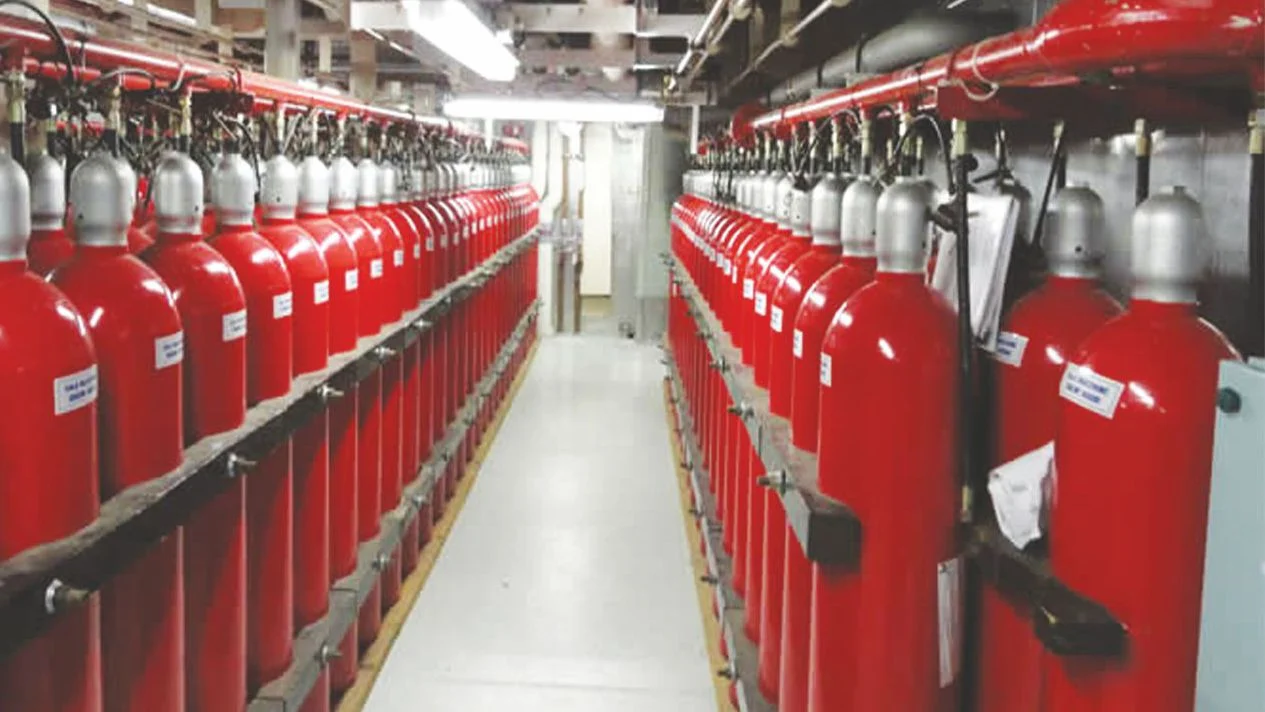Marine fire safety is an essential consideration for vessels of all sizes, from personal leisure vessels to large cargo ships.
Both business owners and private individuals in Florida rely on effective marine fire suppression systems to protect their vessels and the people on board. Here’s what you need to know about marine fire protection.
Understanding Marine Fire Suppression Systems
Marine fire suppression systems make use of various sophisticated safety mechanisms to mitigate the risk of fires on boats and ships.
They rely on different mechanisms to handle many key functions, including fire detection and suppression. Any given vessel might have smoke and heat sensors, agent release systems, control panels, and manual release mechanisms.
It’s important to remember that marine fire protection systems are specifically designed for the marine environment. You can’t simply take household, commercial, or industrial equipment and apply it in the same way. Specific considerations must be addressed when engineering fire suppression for marine environments.
Different Types of Marine Fire Suppression
Marine fire suppression systems fall into two main categories: pre-engineered systems and engineered systems.
Pre-engineered systems are meant for smaller vessels and are sized for standard specs. Engineered systems are typically for larger vessels and are custom-designed to meet that application’s unique needs.
Different systems have different requirements to ensure proper protection. The number and arrangement of sensors, agent release nozzles, and other components, for example, must provide comprehensive coverage and will therefore vary depending on the number and size of distinct areas throughout the ship.
Marine Fire Suppression Installation and Maintenance
Ensuring long-term reliability from marine fire suppression systems requires professional installation. Leaving this important task to the professionals ensures that the system can adequately meet the vessel’s needs and that key components will work as intended in the event of a fire.
Important maintenance requirements should also be handled professionally. Routine inspections that include testing alarms and sensors, agent levels, and nozzle integrity are essential. Proper maintenance can extend the system’s lifespan and help ensure that it works when needed.
Choosing the Right System for Your Needs
How can you find the right system for your vessel? Once again, working with professionals is the best way forward.
Many elements impact system design. Vessel size, engine room complexity, fuel type, and typical journey length are all critical factors.
Even with pre-engineered systems for smaller vessels, working with a professional is the best way to go. A qualified expert can help you choose the right system for your vessel’s needs and see that installation is handled properly to deliver reliability and longevity.
Keeping Up With Code Requirements
Keeping everyone on board your vessel safe is priority number one when selecting a marine fire protection system.
Maintaining code compliance is also important, as it establishes a baseline for safety and will help you avoid fines and other liabilities. Many different organizations set marine fire safety standards, including the International Maritime Organization and the United States Coast Guard.
It’s critical to ensure that your new marine fire suppression system installation meets code requirements. However, you’ll also be responsible for keeping up with changes in the future. Finding the right professionals to help with audits, inspections, and certification can make satisfying code requirements much easier.
Professional Marine Fire Suppression Services
No matter what your specific marine fire suppression needs may be, Preventive Fire offers the services and equipment needed to meet all requirements.
Our peerless knowledge of marine fire protection, kitchen hood systems, fire alarms, and other key components enables us to deliver tailored solutions for any vessel. Stay safe and meet code requirements by reaching out to our team today.

